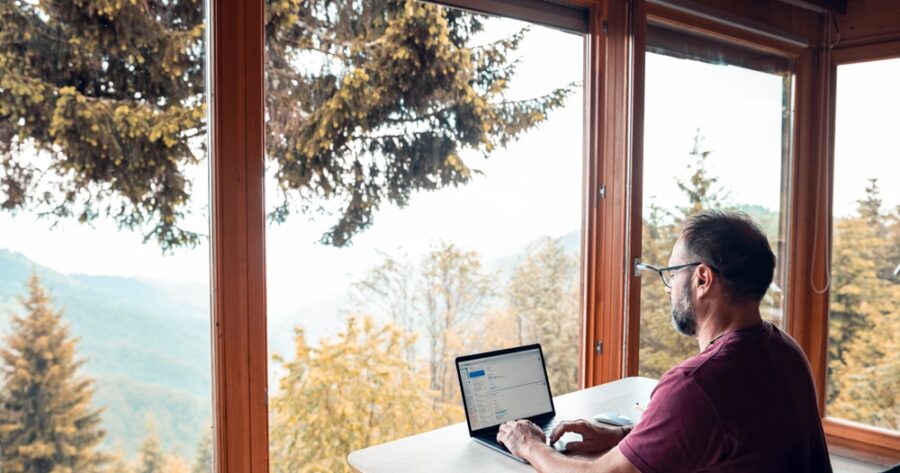Working remotely has opened up new possibilities, including the chance to blend work and travel in what’s now known as a “workation.” This setup lets you explore a new place while staying productive, all without taking time off. Whether you’re considering a beachside retreat or a cozy cabin in the mountains, planning a workation can add balance and excitement to remote work life.
Choosing the Right Location
The success of a workation depends largely on your choice of location. Opt for a destination that combines relaxation and reliable amenities. Look for places with stable internet, accessible power sources, and nearby services. If you plan to work during specific hours, think about time zone compatibility with your team or clients. Coastal towns, mountain resorts, and even vibrant cities often have remote worker-friendly spaces and plenty of options for downtime enjoyment.
Consider researching coworking spaces or cafes that welcome remote workers. Many popular workation spots are catering to digital nomads with reliable internet and quiet spaces for calls or meetings. Your goal is to find a location where work and leisure are both easy to access, without sacrificing productivity.
Setting Up a Dedicated Workspace
While it might be tempting to work from bed or a lounge chair by the pool, setting up a dedicated workspace is key for staying productive. A simple desk setup with a chair that supports good posture can make a big difference in how well you work. When booking accommodations, look for listings that mention a desk, ergonomic chair, and fast internet.
If you’re staying somewhere without a designated workspace, bring essential items like a portable laptop stand, wireless mouse, or noise-canceling headphones. These tools help create a comfortable work environment, even in a temporary location. A little planning goes a long way in keeping you focused during work hours, which means you’ll have more time to enjoy the local area afterward.
Balancing Work and Leisure
One of the biggest challenges of a workation is balancing productivity with enjoyment of your surroundings. Start by setting specific work hours and sticking to them, allowing for dedicated time to explore your destination. Avoid scheduling meetings or heavy tasks during local peak times for activities like sightseeing or visiting popular spots.
Try taking shorter but frequent breaks to step outside, experience a bit of the local culture, or just relax. You might also consider setting boundaries on your digital communication. If possible, let colleagues know when you’ll be offline to avoid unnecessary interruptions. Planning a few outings or activities for each day gives you something to look forward to while keeping you motivated to stay on task during work hours.
Planning for Connectivity and Tech Needs
Reliable internet access is non-negotiable for a successful workation. Check with your accommodation about the speed and stability of their Wi-Fi. You might also consider bringing a portable hotspot as a backup, especially if you’re venturing to a rural or remote area. Some remote workers find it useful to have a second SIM card with data, ensuring access in places with limited Wi-Fi options.
Make a list of essential devices and tech accessories to pack. Extra chargers, a backup laptop battery, or an extension cord can be lifesavers. For international workations, a power adapter suited to the country you’re visiting is a must. Preparing these items ahead of time helps you stay connected and productive without disruptions.
Budgeting for Your Workation
Planning a workation means budgeting for both work essentials and travel costs. Take into account the expenses of travel, accommodation, food, and any local transportation you may need. If you’re planning to work in a coworking space, add that to your budget as well. Additionally, setting aside funds for leisure activities will allow you to enjoy your time without worrying about unexpected costs.
Look up any deals for extended stays; many hotels and vacation rentals offer discounts for stays over a week. Some credit cards also offer points or cashback for travel-related expenses, which can help keep costs down. Proper budgeting will ensure that you can enjoy your workation without financial stress, focusing on both work and relaxation.
Staying Productive and Focused
A successful workation depends on your ability to stay productive. Keeping a daily schedule can help you maintain your work output while also letting you plan downtime activities. Stick to your usual habits, like starting the day with a set routine or planning tasks the night before. A clear plan for each day helps you stay on track and allows for guilt-free leisure time afterward.
Try using productivity tools like task lists or time-management apps to help you stay focused. Apps that track your productivity or block distractions can be useful in new surroundings. With just a few tweaks to your usual routine, you’ll stay effective in your job while making the most of your unique location.
Wrapping Up: Maximize Your Workation
Planning a workation combines the best of both worlds: the ability to stay productive while exploring a new place.
By choosing the right location, setting up a workspace, balancing your schedule, and preparing for connectivity, you’ll be able to enjoy a stress-free workation. With a bit of organization, you can transform remote work into a refreshing, productive travel experience.
